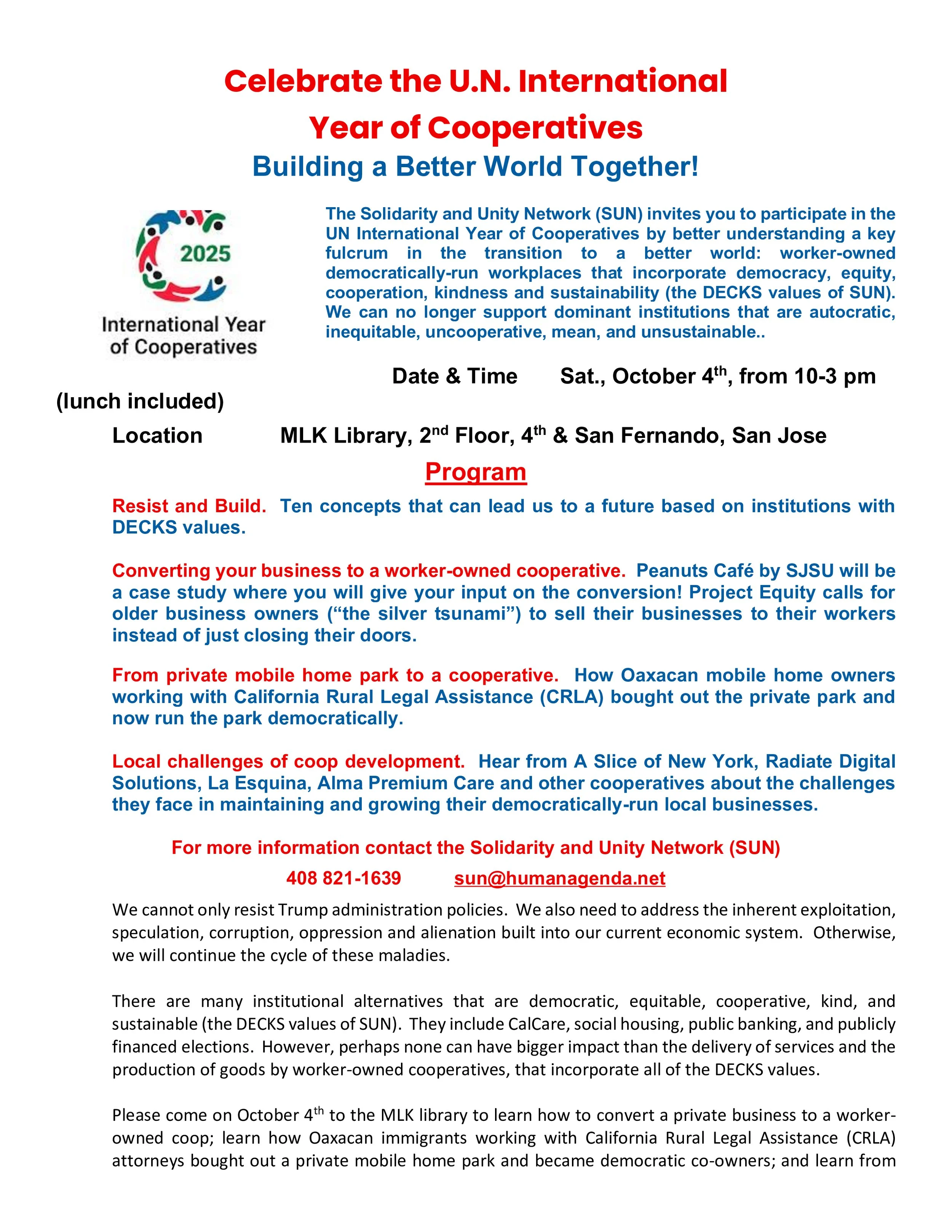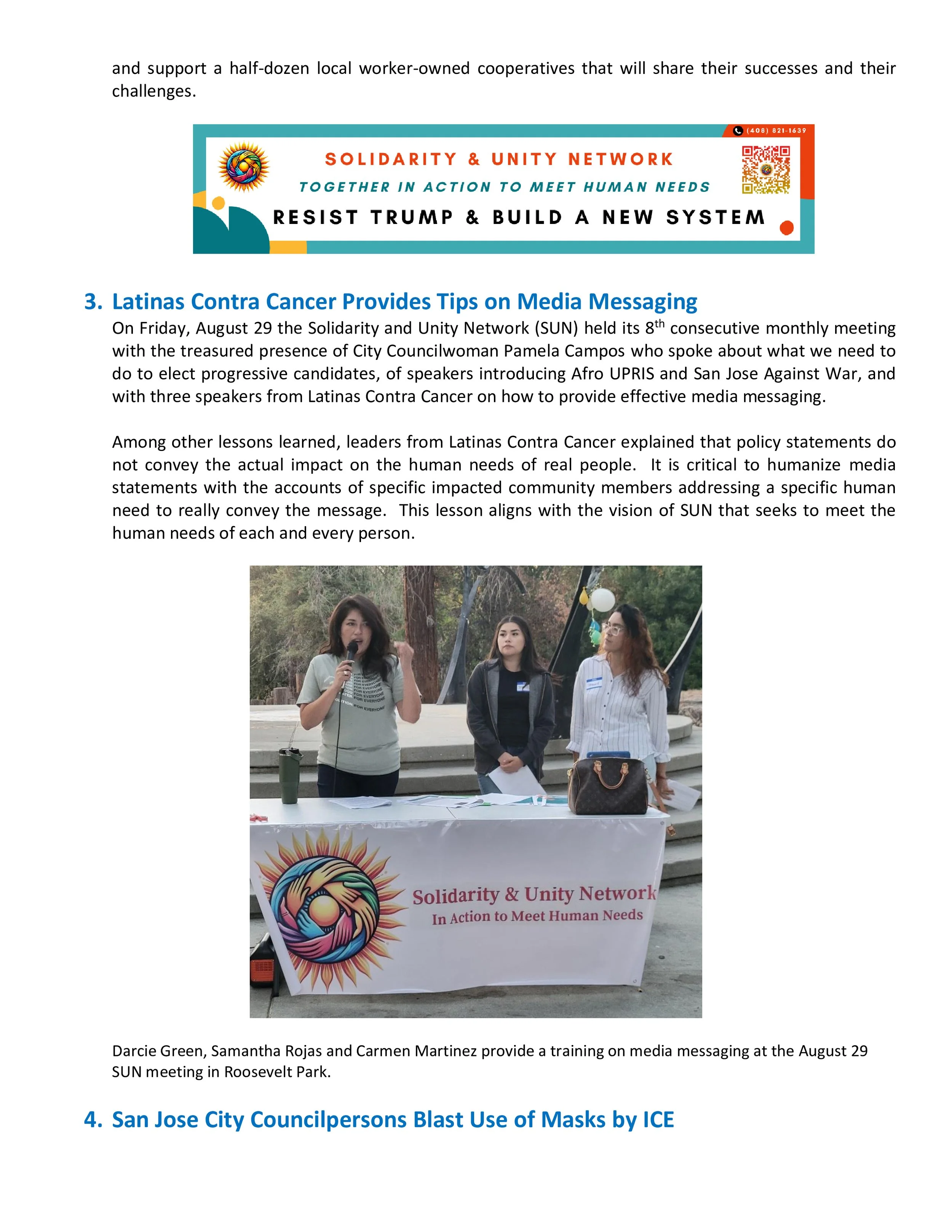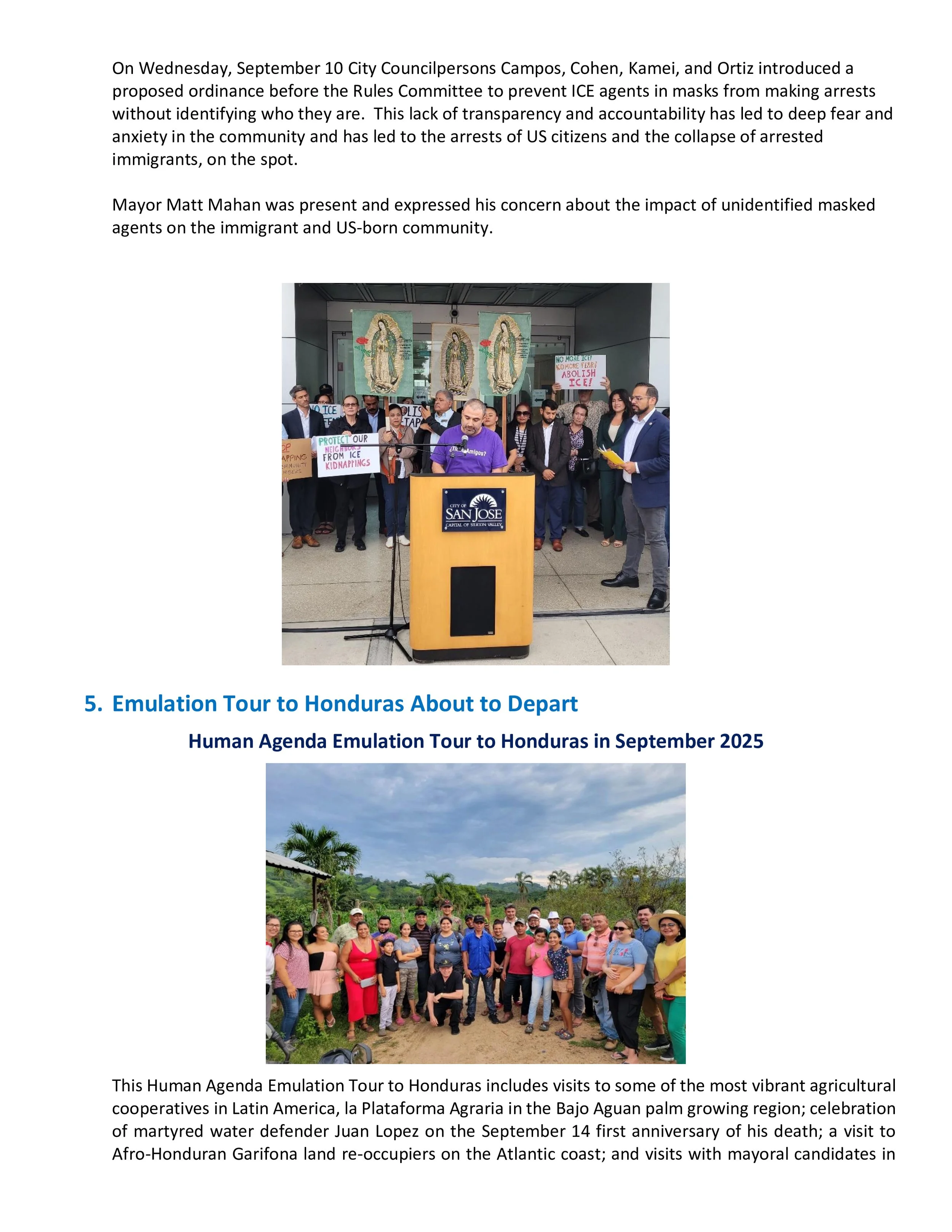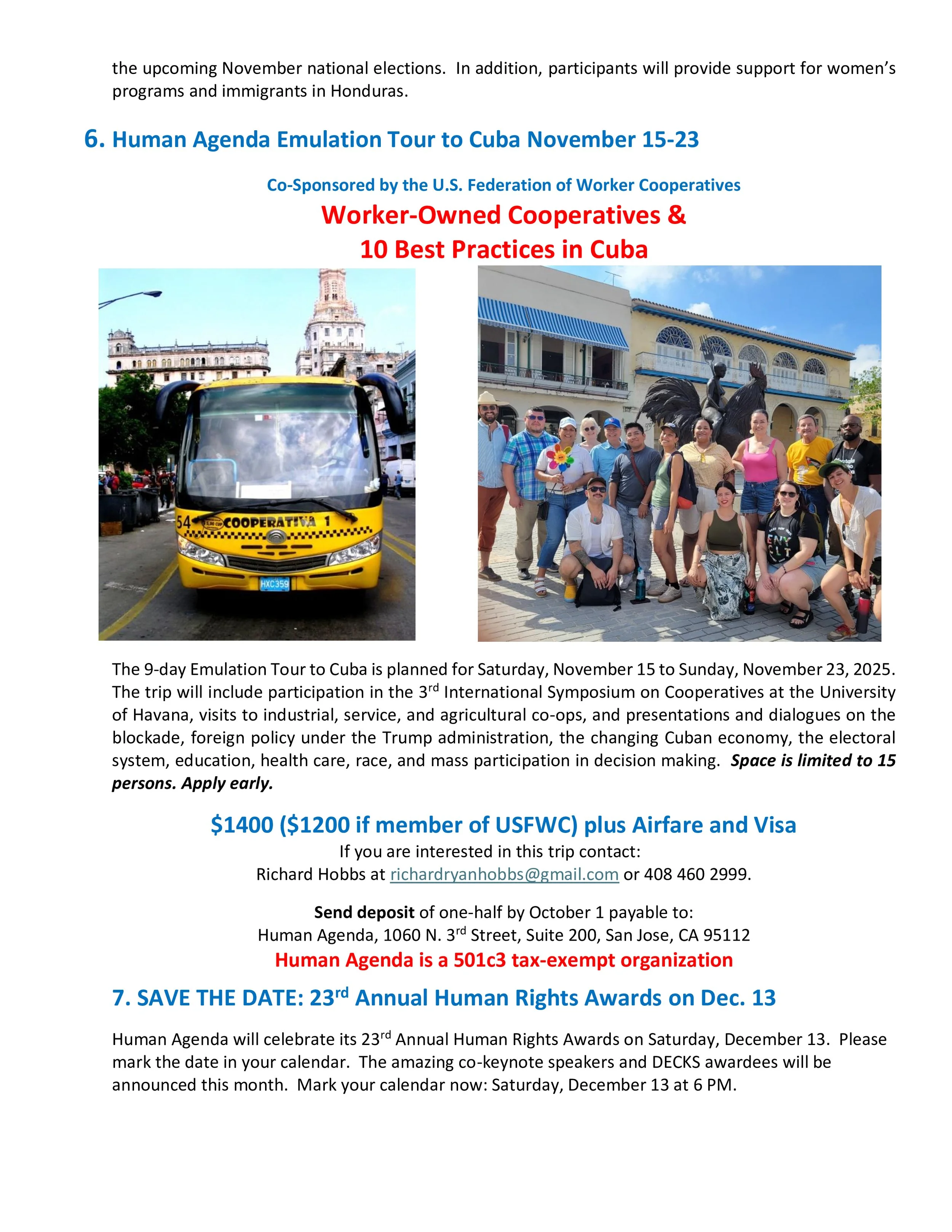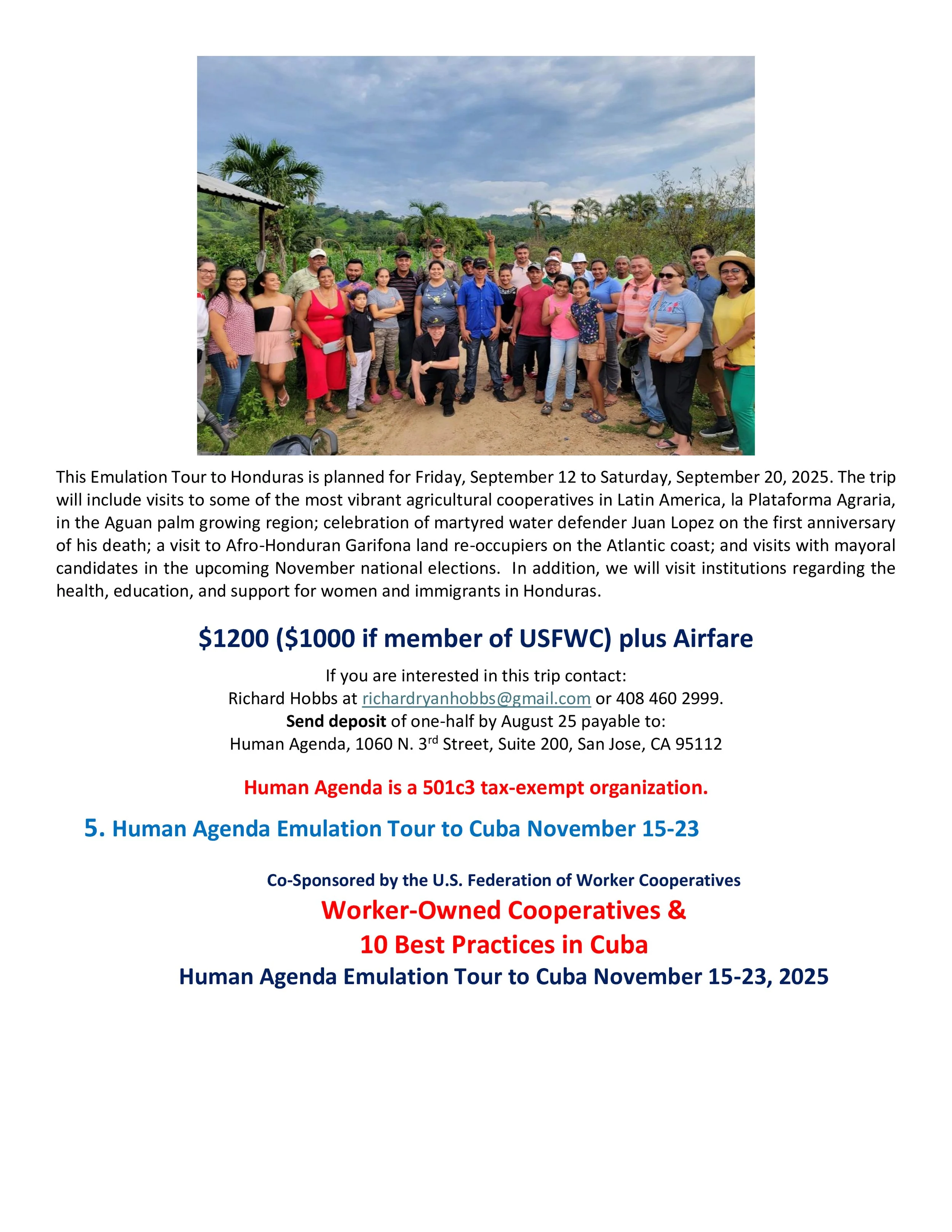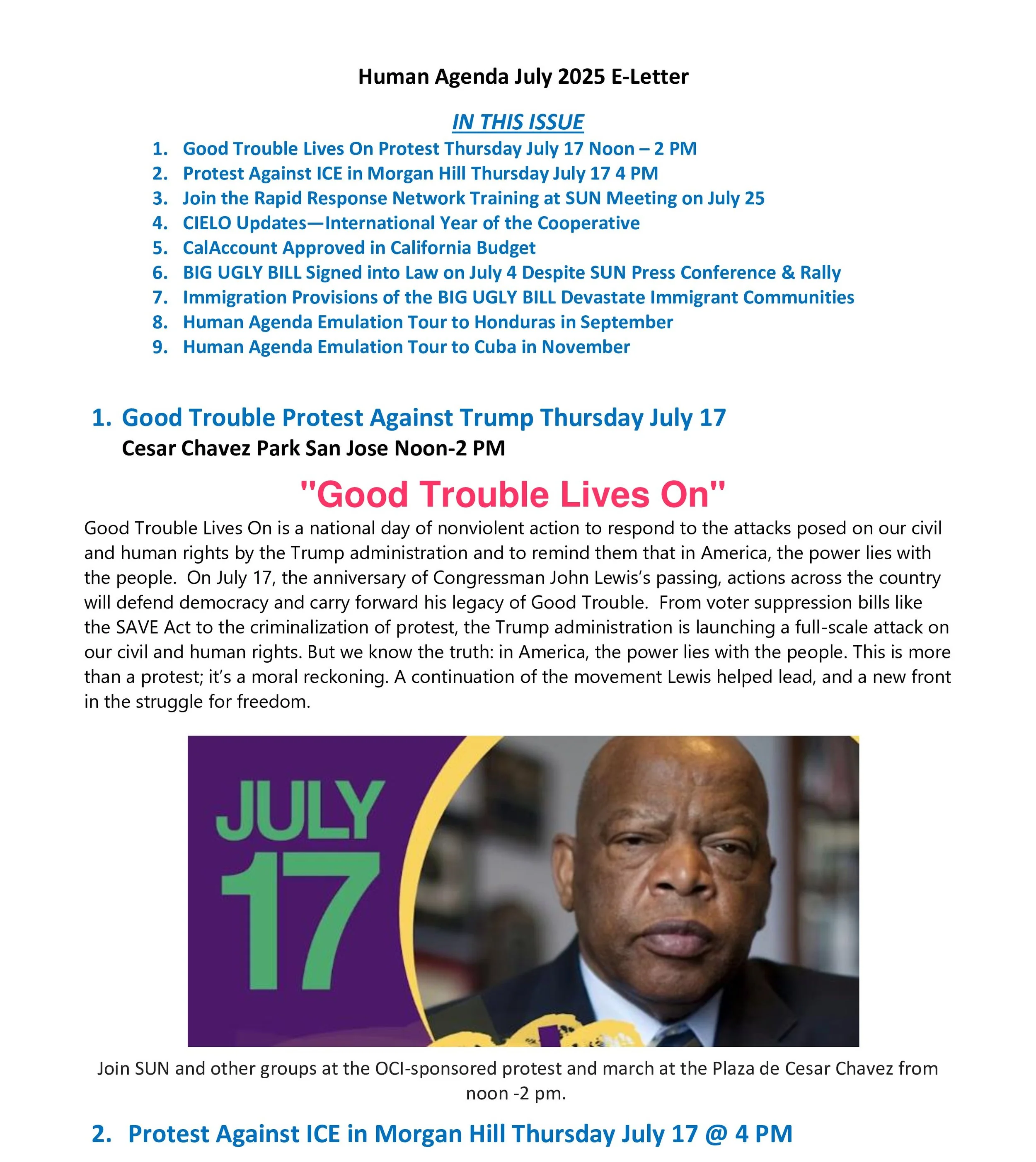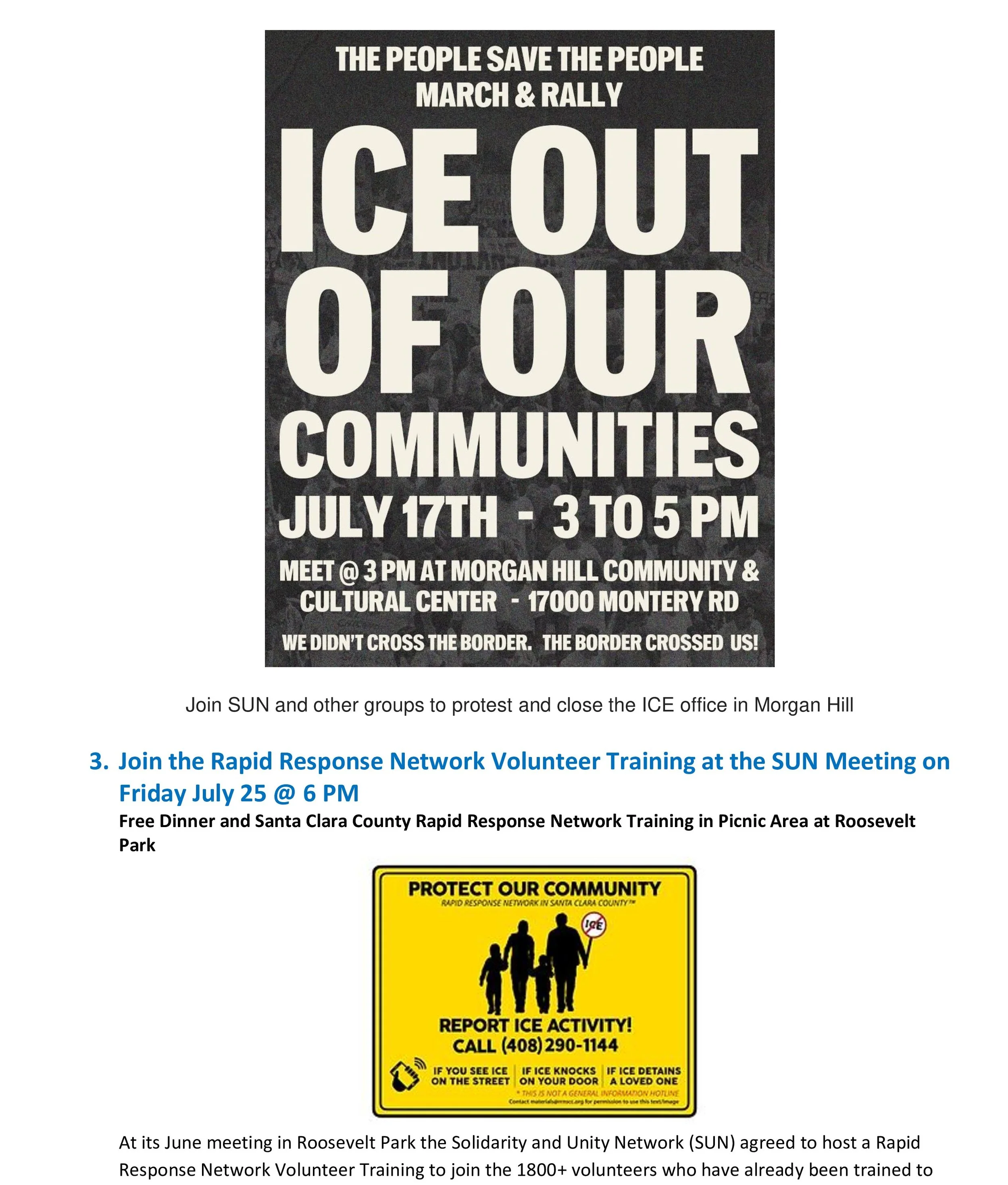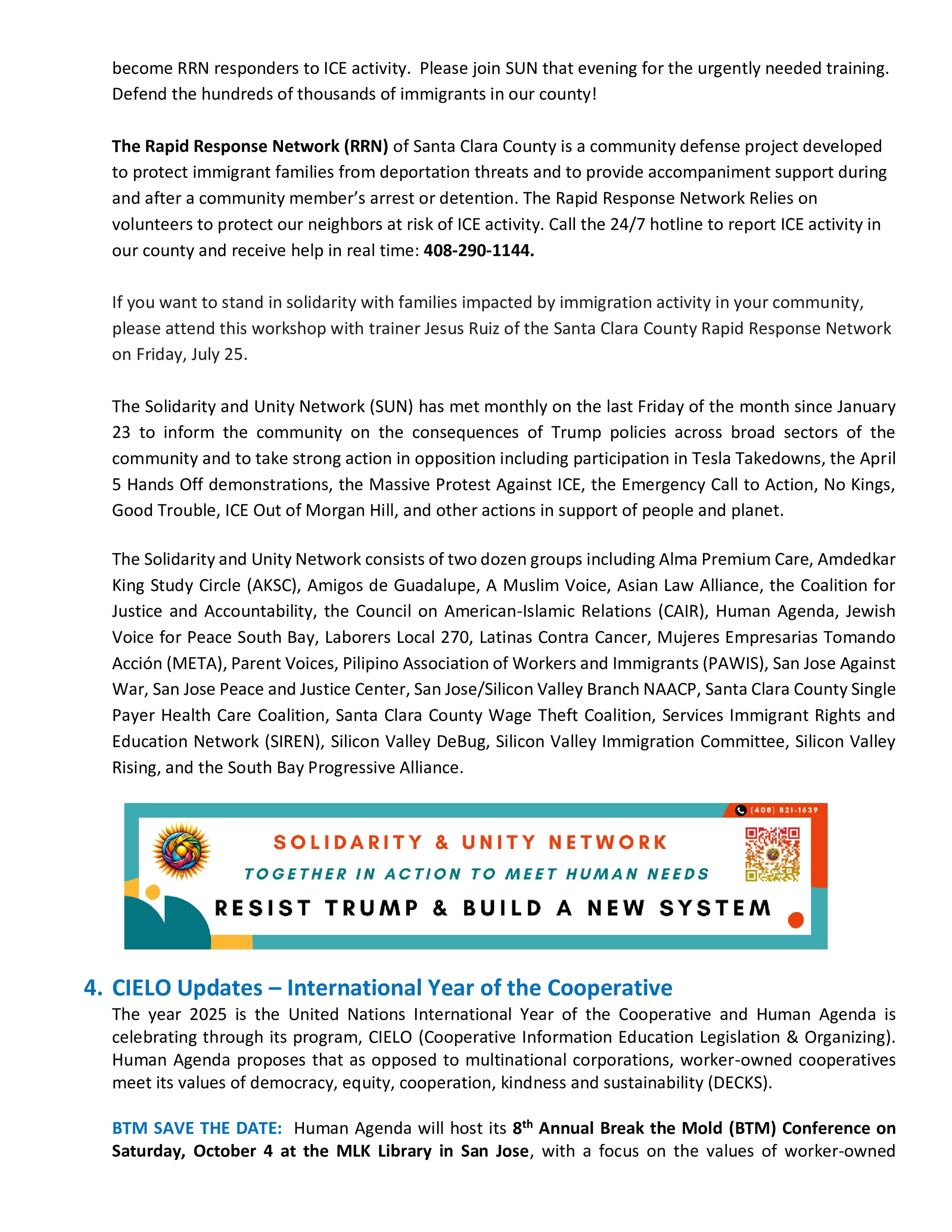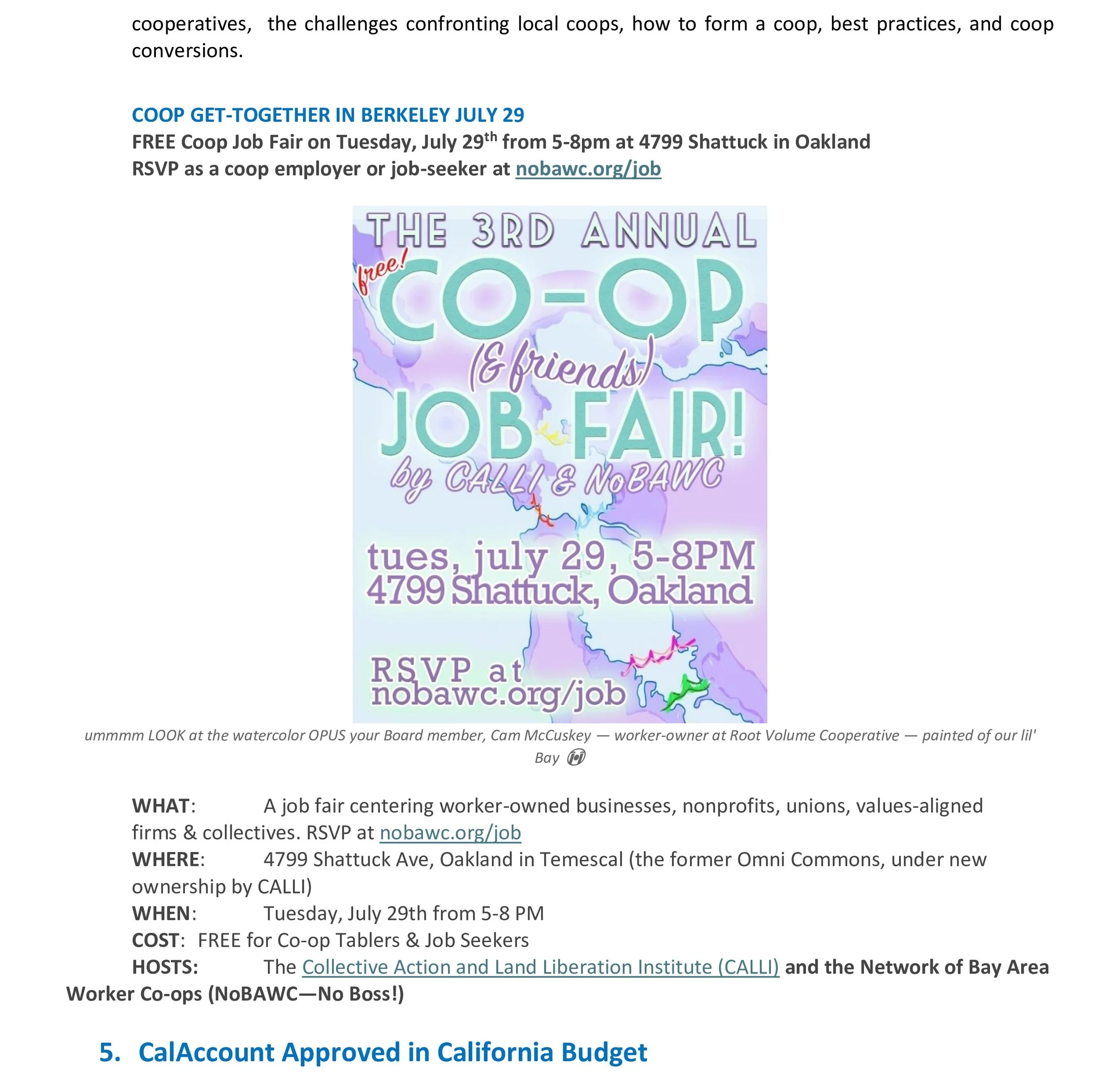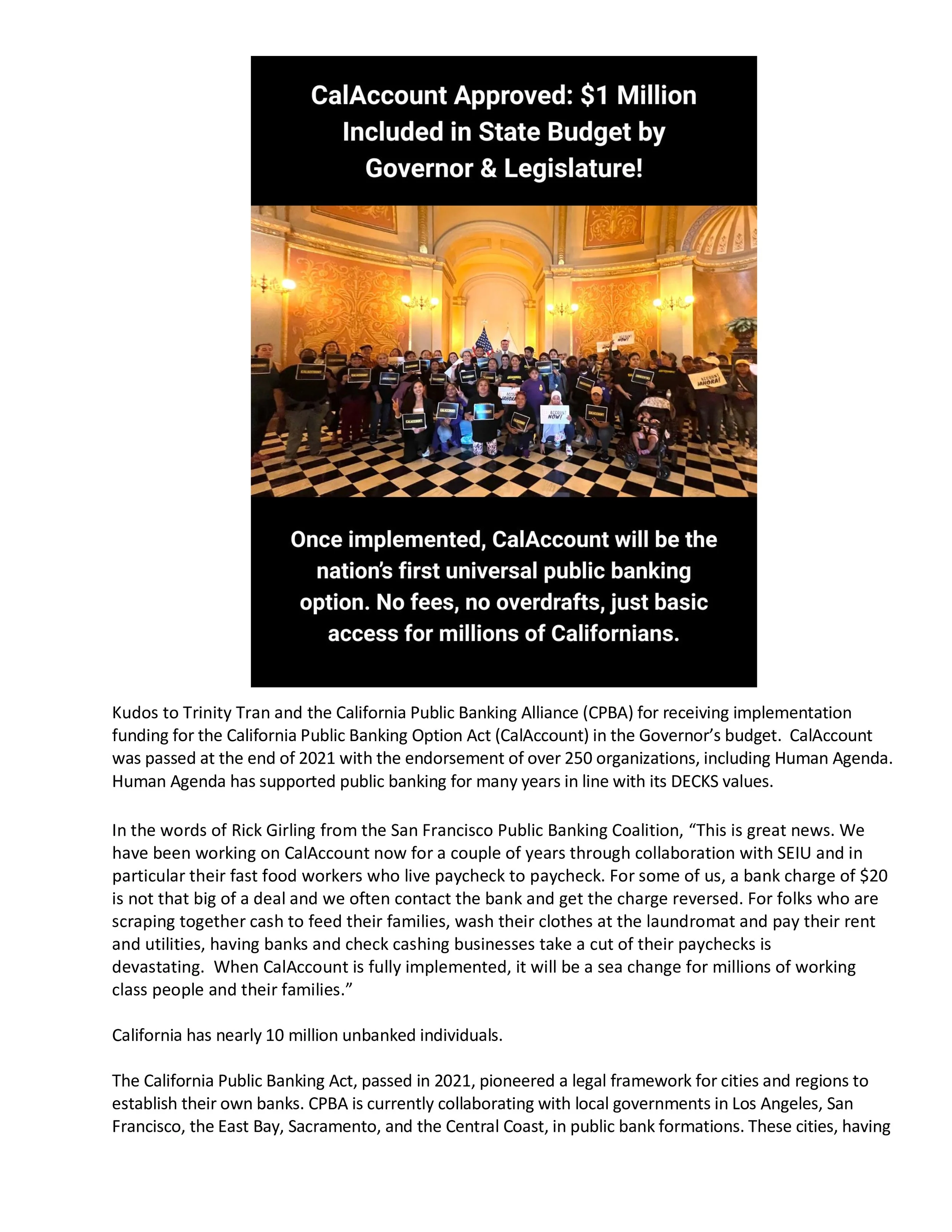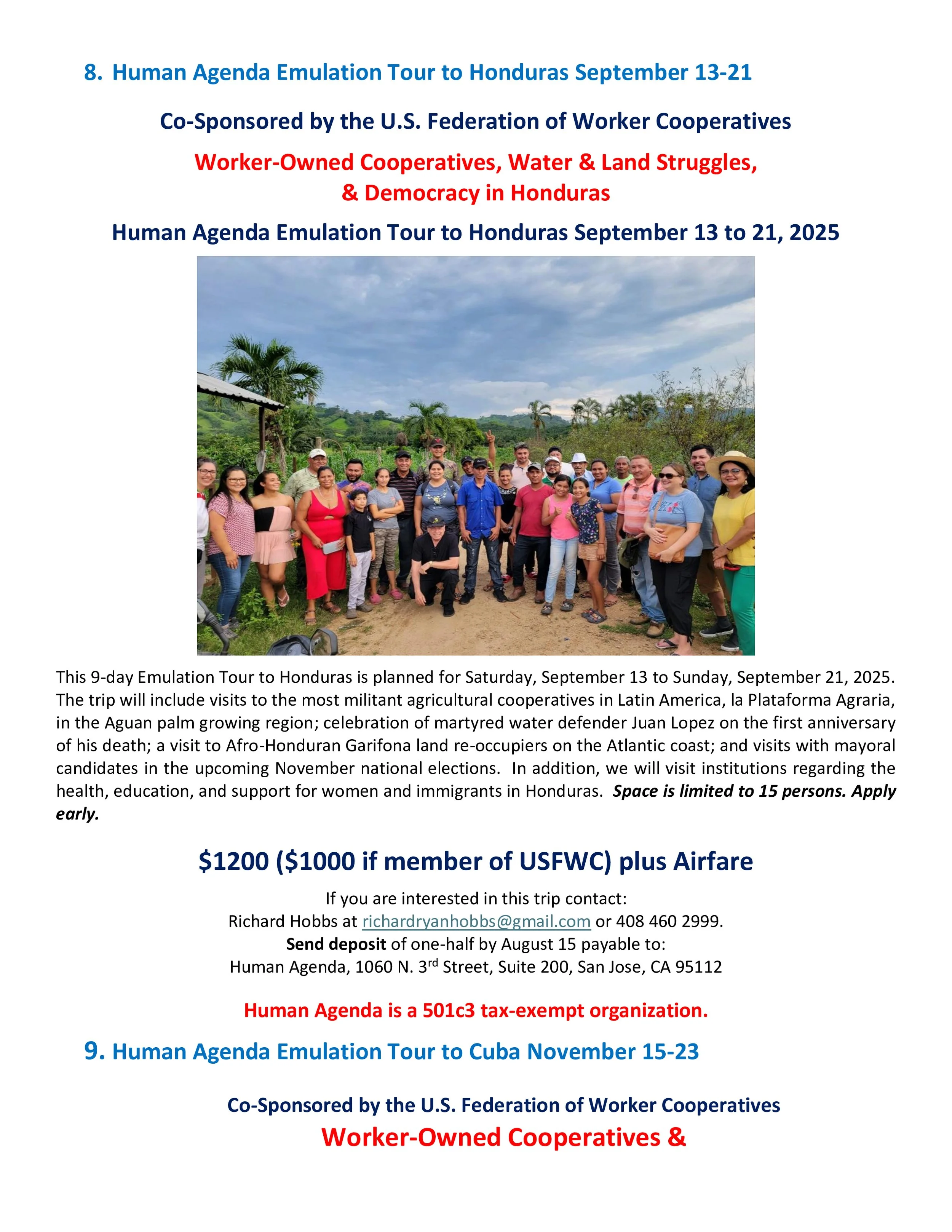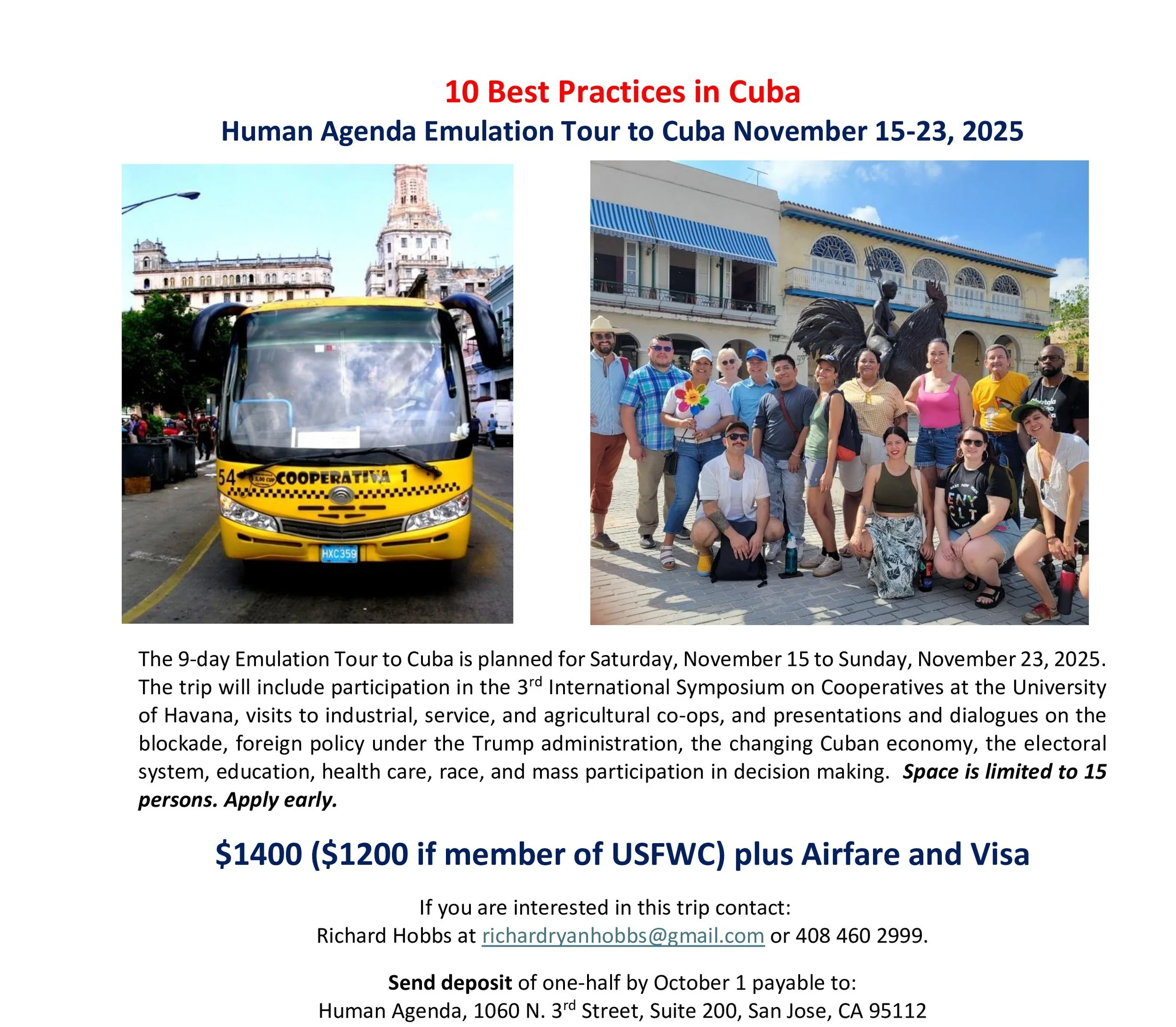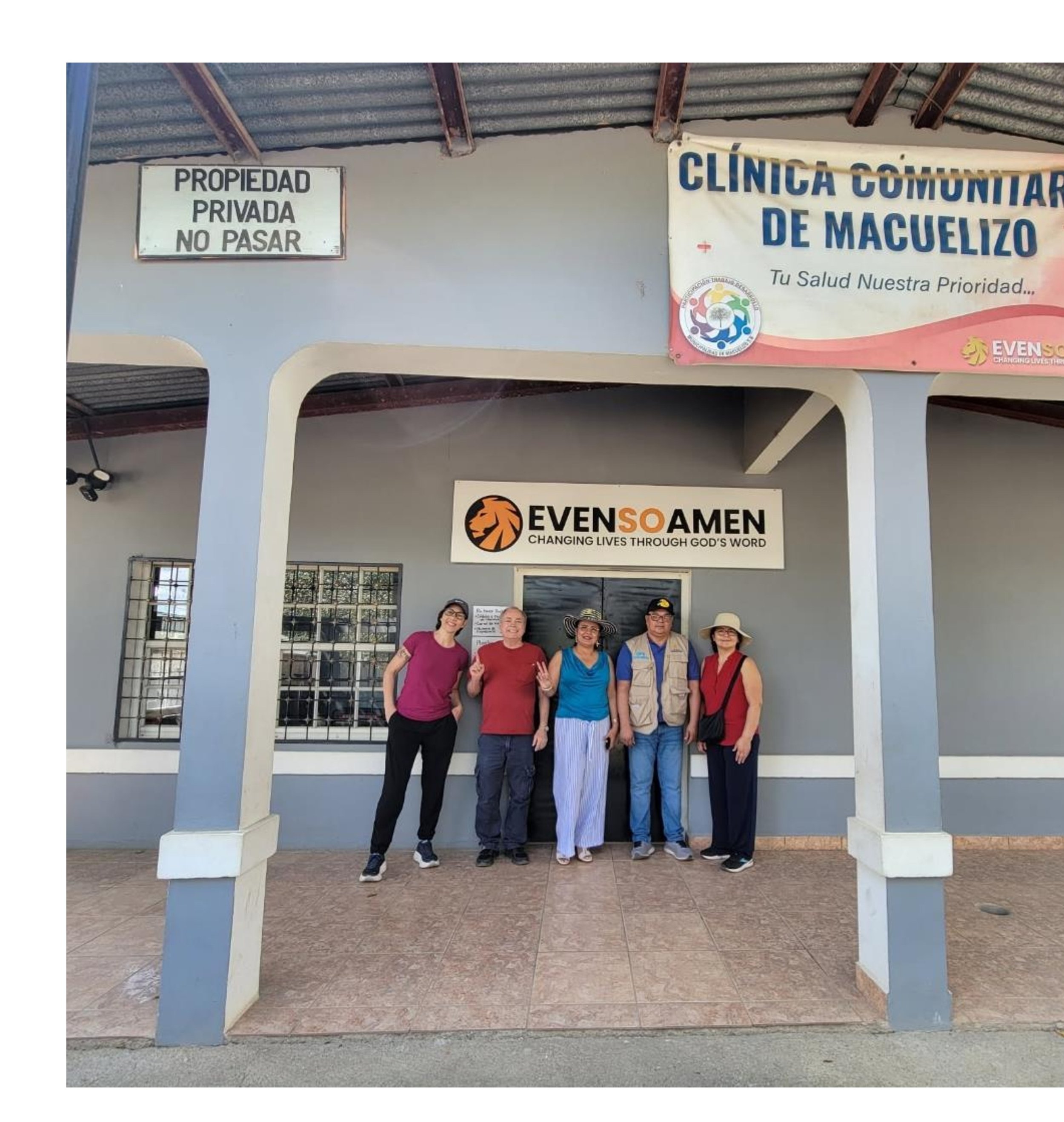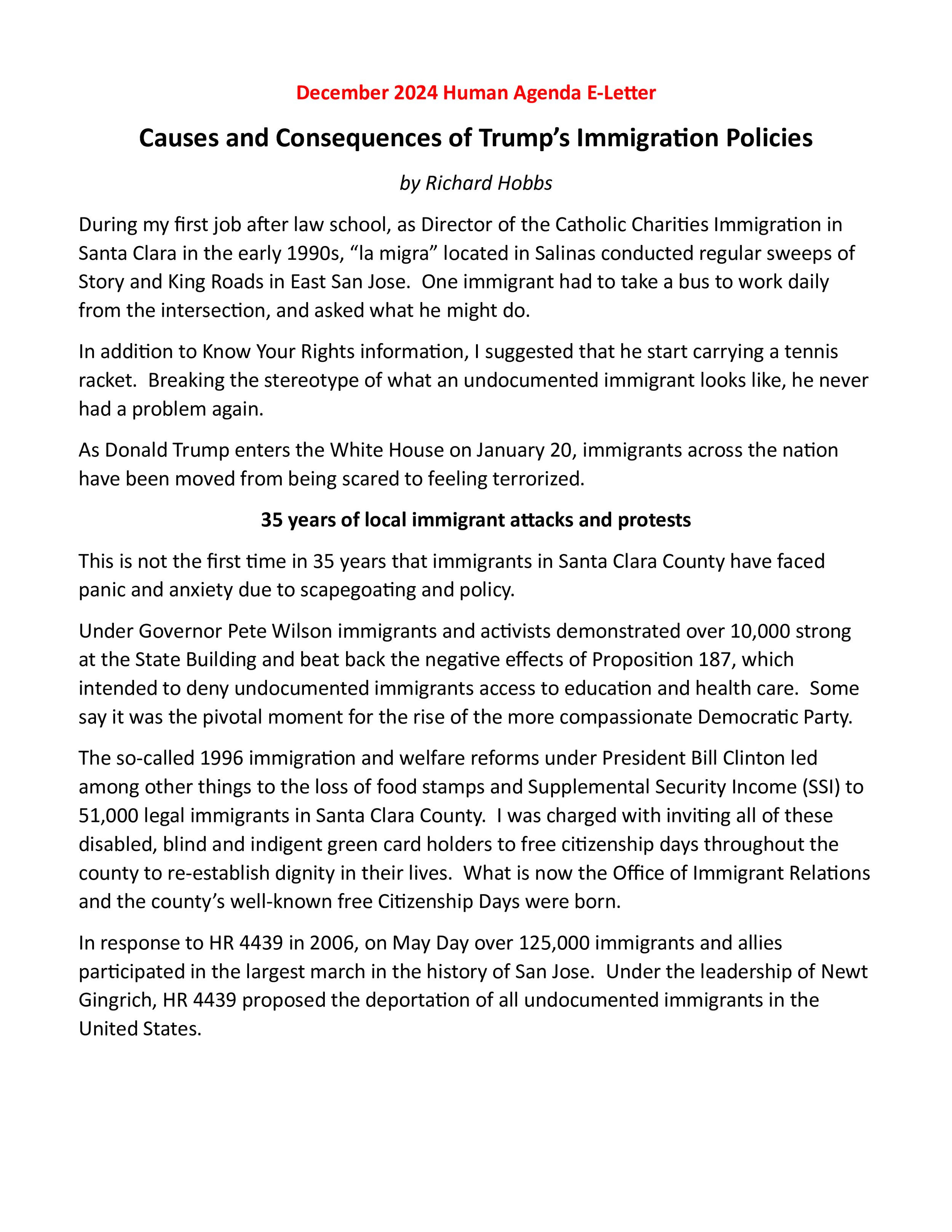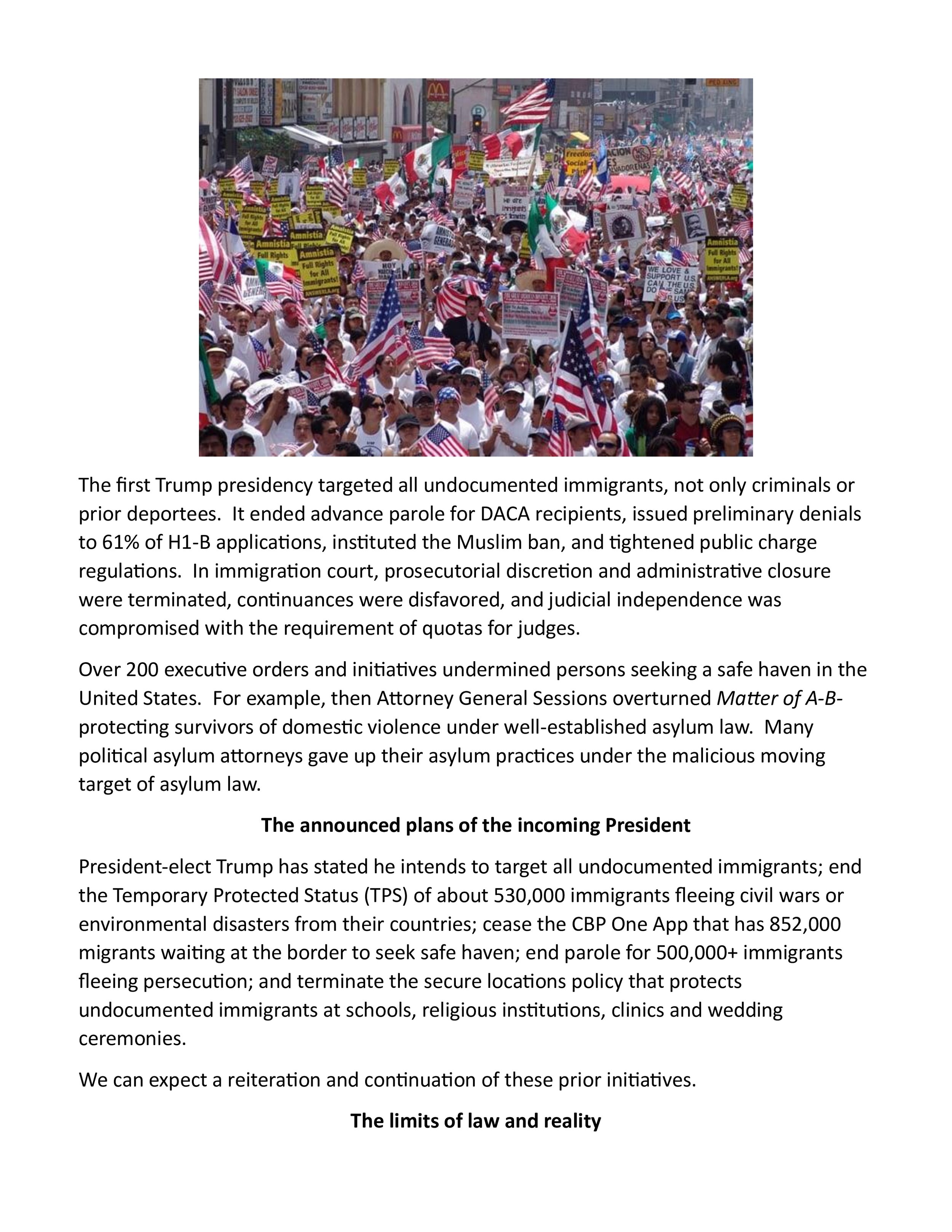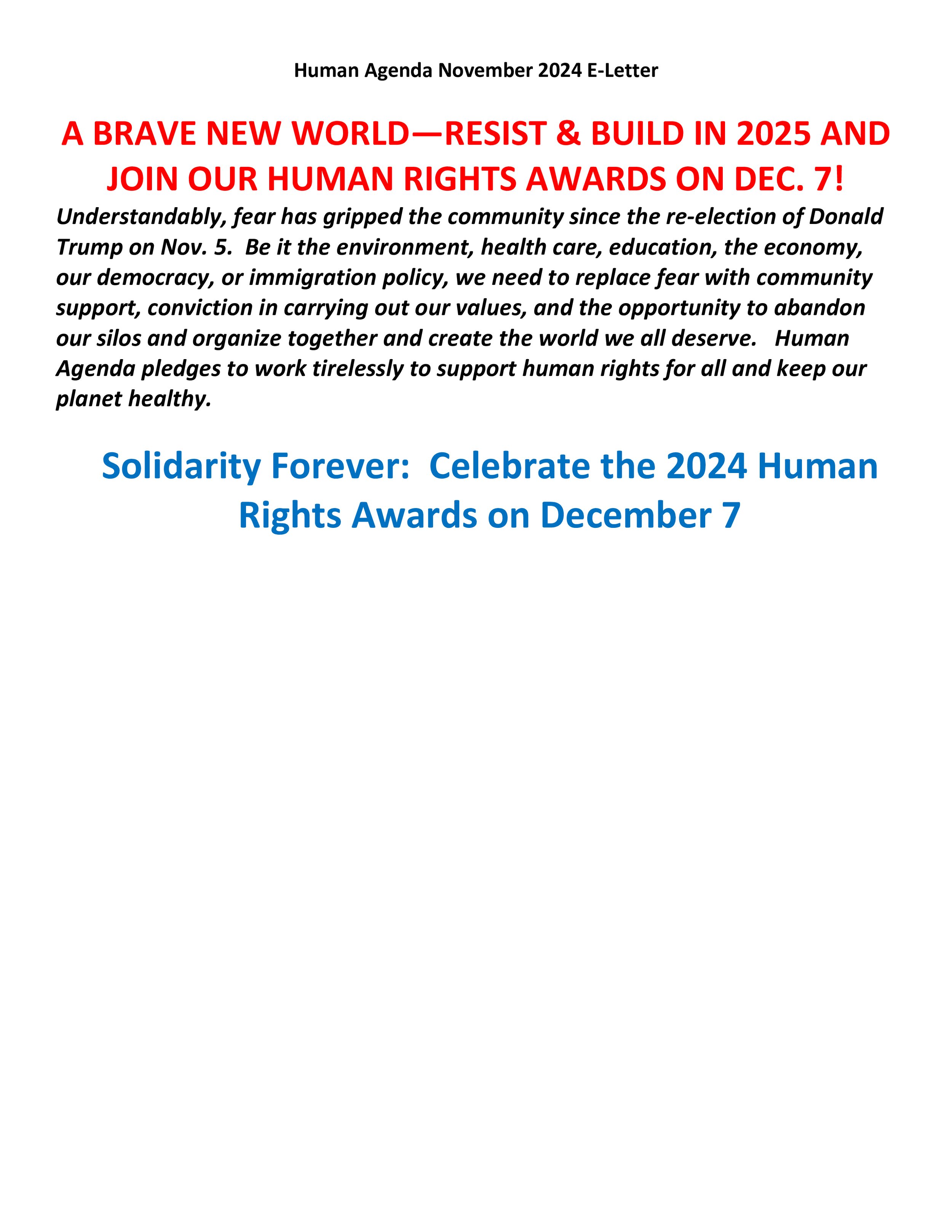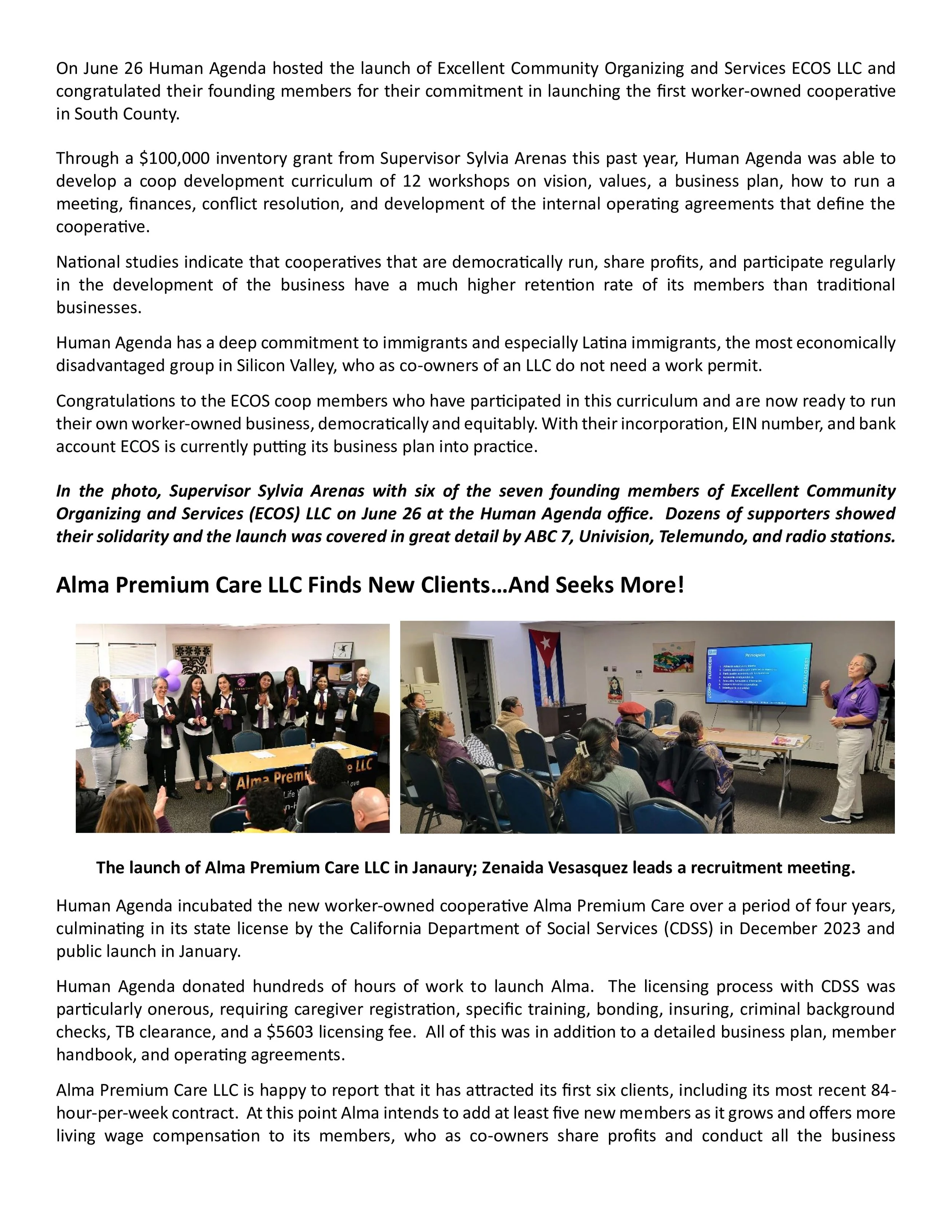July 2023 Newsletter
/Help Promote Democracy, Equality, Cooperation, Kindness & Sustainability (DECKS)
In this Issue
LAST CHANCE: The 50-Mile Rule and Migrant Farmworker Housing Carpool this Sunday
The Lives of Farmworkers in Half Moon Bay
Facts About California Farmworkers
Pending Farmworker Bills in California
CalCare Town Hall: Support AB 1690
Save the Date: South Bay Premiere of Stewart Udall with Filmmaker John de Graaf Aug. 13
1. The 50-Mile Rule and Migrant Farmworker Housing: Sign Up Now
Como Vivimos Documentary, Testimonies, Farmworker Meal, & Migrant Labor Camp Visit
Join Human Agenda this Sunday to hear from two farmworkers at the Buena Vista Migrant Labor Camp and another displaced farmworker from the Pajaro flooding.
We will also see the premiere of Como Vivimos, a new documentary on the 50-mile rule affecting the education of farmworker children, enjoy a farmworker meal, and hear from Dr. Ann Lopez about farmworker conditions and the impact of NAFTA on subsistence farmers in Mexico.
2. Farmworkers in Half Moon Bay Share Their Stories
July 16 was a special day for over a dozen Human Agenda board members and supporters who learned about the working conditions and displacement suffered by farmworkers in Half Moon Bay. Suffering under climate crisis heat, earning slightly above the minimum wage, working chaotic hours controlled by growers, and reeling from the mass killing of four farmworkers at the mushroom business where they work, farmworkers explained the conditions that control their lives.
This farmworker tour was coordinated by Judith Guerrero, Executive Director of Coastside Hope in Granada , a few miles north. Judith explained the exceptional support that this non-profit provides to farmworkers, low-income service workers, and immigrants in particular. Truly an exemplary human needs-focused not-for-profit agency, Coastside Hope assists with food, rental assistance, medical referrals, immigration legal support, tax preparation, and other services providing for the whole person. Judith’s family comes from a farmworker tradition—in fact her mother, a farmworker, prepared the delicious tamales that participants consumed.
Human Agenda board member Brenda Rodriguez, left, translates for Half Moon Bay farmworkers Uriel and Cornelio, as Coastside Hope Executive Director Judith Guerrero looks on.
3. Facts About California Farmworkers
Human Agenda intern Jacob Kahn has compiled the following facts about California farmworkers. Most statistics are from the US Department of Labor,
Farmworkers workers are 3500% (35 times more) likely to die of heat exhaustion than other workers.
17% of California farmworkers in the fiscal year of 2019-20 are US citizens, 23% are legal permanent residents, and 59% are undocumented.
66% of California farmworkers in the fiscal year of 2019-20 are males.
The average age of the workers is 41.
The average highest completed grade of school for California farmworkers is 8th grade. 4% of workers have completed no levels of schooling, 12% have 1st-3rd grade, 31% have 4th-7th grade, 33% have the highest level of schooling in 8th-11th, and 21% have completed high school or one year of college.
39% of California farmworkers self-reported as having no English Speaking Ability (ESA), 33% as having "a little" ESA, 15% as having "somewhat" ESA, and 13% as having "well" ESA. Similarly, only 13% self-reported as having good reading ability.
44% of workers are married parents. 19% are married without children. 15% are unmarried parents. 22% are unmarried without children.
The median personal income range of workers is $20,000-24,999.
17% of worker families are below the poverty level income, and 69% of worker families received benefits from needs-based programs.
9% of workers are Mexican-American. 80% of workers are Mexican. 6% are not Hispanic or Latino.
The average hourly earnings in 2019-2020 was $13.87.
9% of farm workers are paid below minimum wage.
The average number of days worked in the last 12 months is 250 days. The average number of weeks worked in the last 12 months is 43. The average number of hours worked per week is 49 hours. 16% of workers worked between 51-60 hours per week.
50% of farmworkers have "health insurance, taking into account all provider sources, including the respondent's employer, self-insurance, the government, the spouse's employer etc."
Counties with the lowest proportions of farmworkers are located in the Los Angeles basin, the Bay Area, and Sierras.
4. Pending Farmworker Bills in California
Dr. Ann Lopez and the Center for Farmworker Families have compiled the following list of pending legislation in California affecting farmworkers.The list is slightly modified.
AB 642--- Marginalized communities, especially farmworker communities, suffer disproportionate damage from pesticide exposure. This important bill has already passed the Assembly and now is up for consideration in the state Senate. Currently, there is no system of accountability for harmful pesticide exposure across California. The bill will establish an environmental justice advisory committee of 10–15 community members in the Department of Pesticide Regulation (DPR) representing marginalized communities to insure inclusion, consultation and cooperation with rural communities on the frontlines of pesticide exposure. This bill will provide these communities with a voice to express their concerns and advise the DPR on the efficacy of pesticide applications in their communities.
AB 421---This bill will give voters the power to counter the political effects of concentrated corporate wealth. It will prevent corporations from virtually vetoing critical advances that workers and communities have won through legislation.
AB 513---The California Individual Assistance Act will provide relief for the flood victims of Pajaro. It would establish a program through the California Office of Emergency Services that would provide direct financial assistance to all Californians, regardless of documentation status, in times of disaster. The assistance would provide financial assistance to help families repair disaster-related damages and losses in income not covered by insurance or other assistance programs so that economic assistance can be quickly and equitably distributed following major wildfires, flooding, and other disasters.
SB 227---The Excluded Workers Program establishes a three-year pilot program that would extend unemployment benefit eligibility to as many as 1.1 million workers, including farmworkers, who don’t qualify due to immigration status. Currently, employers pay $485 million into the unemployment insurance system on behalf of undocumented workers. However, unlike other workers, undocumented workers never receive any of these funds.
AB 1757---This bill promotes the reduction of greenhouse gases, including pesticide reduction in agriculture. A new report from the Pesticide Action Network finds pesticide use is expected to increase and become more hazardous as the climate warms. The chemical use in large scale farming is increasing as effectiveness drops and climate change puts additional pressure on agriculture.
AB 408---This Bill proposes a $3.4 billion bond for the November 2024 ballot to invest in creating a more equitable and climate resilient food and farming system. Proposed funding would promote sustainable agriculture, farmworker well-being, healthy, and sustainable food access.
5. CalCare Town Hall: Support AB 1690
Human Agenda has been a long-term supporter of MediCare for All and its California twin, CalCare. On Wednesday, July 19 the California Nurses Association and allies including the South Bay Progressive Alliance and Human Agenda supported the launch of a statewide campaign to pass California universal health care first “as a policy, subject to appropriation” stated State Senator Dave Cortese. When the details of a financing plan become the central topic of conversation, the forest is lost in the trees and California lawmakers. First they need to agree that we need a policy to care of all the health needs of everyone in California. Once a policy bill is passed, then California can seek federal MediCal waivers to help finance the program.
Both Senator Cortese and Assemblymember Ash Kalra, Chair of the Labor and Employment Committee of the California Assembly, were adamant and passionate that to “reduce suffering” AB 1690 must become law. AB 1690 is a spot bill at this point that will include full language by early 2024.
These enlightened policymakers made several remarkable points:
“Medical bankruptcies are uniquely American”, stated Kalra.They don’t happen in other advanced countries, which all have universal health care coverage.
“Long term care is a tsunami. CalCare would deal with this”, Kalra also stated.
“Retiree benefits are impossible to contain given rising private health care sector costs”, explained Cortese.“The solution is CalCare.”
“Private sector companies are misclassifying workers as independent contractors to avoid healthcare costs”, mentioned Cortese.
Employers could save millions with CalCare, spending a fraction of what they spend now.As to both employers and unions, “What you legislate you don’t have to negotiate”, both agreed.
“We need a full on movement like ending slavery”, urged Cortese, who also quoted Nelson Mandela regarding the long march for human rights like health care: “It seems impossible until it is done.”
Assemblymember Kalra is the author of AB 1690. Both policymakers must be commended for sticking their necks out in support of the full medical needs of workers, elderly, immigrants, the infirm, and everyone “to reduce suffering”.
6. Save the Date: The Politics of Beauty with Filmmaker John de Graaf
Join Human Agenda & Environmentalists on Sunday August 13 at 3 PM
Former Human Agenda board member John de Graaf has produced this widely acclaimed documentary on the life and times of Stewart Lee Udall, former Congressperson and Secretary of the Interior under John F. Kennedy and Lyndon Baines Johnson. Udall was the most prominent and effective Secretary of the Interior in American history.
In the words of John de Graaf: “No American political figure is as relevant to the issues we face today as a nation -- learning to work together, achieving racial and environmental justice, improving international relations, enhancing beauty and the arts, alleviating climate change and moving toward sustainability -- as Stewart Udall.”
Stewart Udall and the Politics of Beauty will be hosted by Human Agenda on Sunday, August 13, at 3 PM at CreaTV, 38 South Second Street, San Jose, CA 95113. The film is co-sponsored by a bevy of local environmental organizations including the Amah Mutsun Tribal Band, 350 Silicon Valley, Our City Forest, the South Bay Progressive Alliance, the San Jose Peace and Justice Center, and the Smart Yards Cooperative. there will be ample opportunity for dialogue with the filmmaker.
This feature documentary examines the trajectory of Udall’s life from his childhood through his Mormon mission, his World War II service, his student years at the University of Arizona, his time in Congress, and most significantly, his years as Secretary of the Interior and beyond. We see Udall evolve from a pro-power dam Arizona representative to the Interior Secretary who dealt the death blow to proposed Grand Canyon dams. It examines his long fight to win compensation for Navajo Indians and “downwinders” who got cancer from their exposure to radiation during the Cold War without being warned of the dangers. And we see the relevance of his concerns—he was the first public official to speak out about global warming, for example.
Admission is free.


